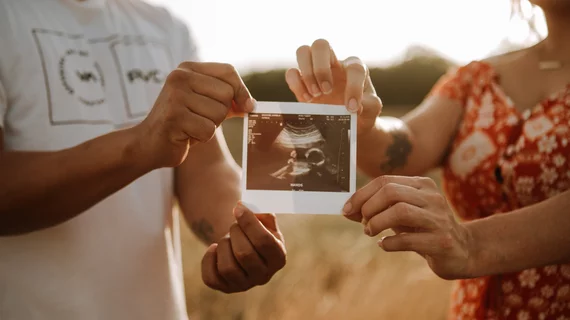Google Health develops AI models for more accurate gestational age estimation
A team of Google Health researchers has developed a group of artificial intelligence models capable of improving the accuracy of sonographers estimating gestational age [1].
The team developed a total of three AI models—one that uses standard images, one that uses fly-to videos and one model that uses both images and videos. When compared against the standard fetal biometry–based gestational age (GA) estimates of expert sonographers, all three models performed statistically better.
Study co-corresponding authors Chace Lee, MS, and Ryan Gomes, PhD, both of Google Health, noted that the models do not require manual measurements from a sonographer to estimate GA. Instead, they are able to make use of the entire image or video. This is important because age estimations largely depend on operator skill and can become less accurate as a pregnancy progresses.
“We found that in the third trimester, our model’s accuracy advantage relative to the clinical standard fetal biometry increased,” the experts stated. “This is particularly important because accurate GA estimation in the third trimester is essential for managing complications and making appropriate clinical decisions regarding timing of delivery.”
The models were developed and trained using images from the United States and Zambia that were included in the Fetal Age Machine Learning Initiative (FAMLI) cohort.
While all recorded impressive accuracy, the ensemble model recorded the lowest mean absolute error in comparison to clinical standard fetal biometry.
All three models outperformed standard biometry when fetuses were predicted to be small for their gestational age—something the experts describe as an important challenge to overcome in GA estimation.
“More accurately identifying fetuses that are FGR will help guide critical clinical care decisions, such as antenatal medication administration, antenatal surveillance intervals, and delivery timing and level-of-care needs,” the authors wrote.
Due to the way the models were built—on routine fetal ultrasound exams—the authors imply that they could be seamlessly incorporated into clinical workflows. In the future, the authors propose that research assess how such models could be used to reduce scan times by assisting sonographers.
The study is available in JAMA.

